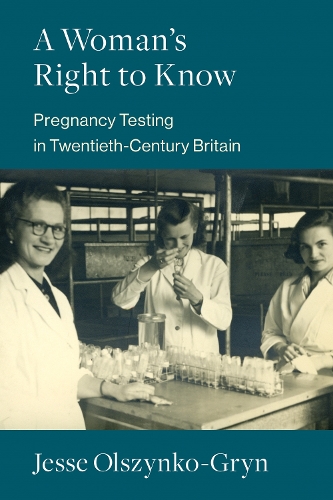
A Woman's Right to Know: Pregnancy Testing in Twentieth-Century Britain
(Paperback)
Publishing Details
A Woman's Right to Know: Pregnancy Testing in Twentieth-Century Britain
By (Author) Jesse Olszynko-Gryn
MIT Press Ltd
MIT Press
9th January 2024
United States
Classifications
General
Non Fiction
Gender studies: women and girls
History of engineering and technology
Central / national / federal government policies
362.19820094
Physical Properties
Paperback
424
Width 152mm, Height 229mm, Spine 25mm
680g
Description
The history of pregnancy testing, and how it transformed from an esoteric laboratory tool to a commonplace of everyday life. Pregnancy testing has never been easier. Waiting on one side or the other of the bathroom door for a "positive" or "negative" result has become a modern ritual and rite of passage. Today, the ubiquitous home pregnancy test is implicated in personal decisions and public debates about all aspects of reproduction, from miscarriage and abortion to the "biological clock" and IVF. Yet, only three generations ago, women typically waited not minutes but months to find out whether they were pregnant. A Woman's Right to Know tells, for the first time, the story of pregnancy testing-one of the most significant and least studied technologies of reproduction. Focusing on Britain from around 1900 to the present day, Jesse Olszynko-Gryn shows how demand shifted from doctors to women, and then goes further to explain the remarkable transformation of pregnancy testing from an obscure laboratory service to an easily accessible (though fraught) tool for every woman. Lastly, the book reflects on resources the past might contain for the present and future of sexual and reproductive health. Solidly researched and compellingly argued, Olszynko-Gryn demonstrates that the rise of pregnancy testing has had significant-and not always expected-impact and has led to changes in the ways in which we conceive of pregnancy itself.
Author Bio
Jesse Olszynko-Gryn is a historian of science, technology, and medicine at the University of Strathclyde in Glasgow. As co-lead on the internationally collaborative research project "Risky Hormones," he works with patient groups to investigate the contested science and politics of birth defects in the post-thalidomide world.
